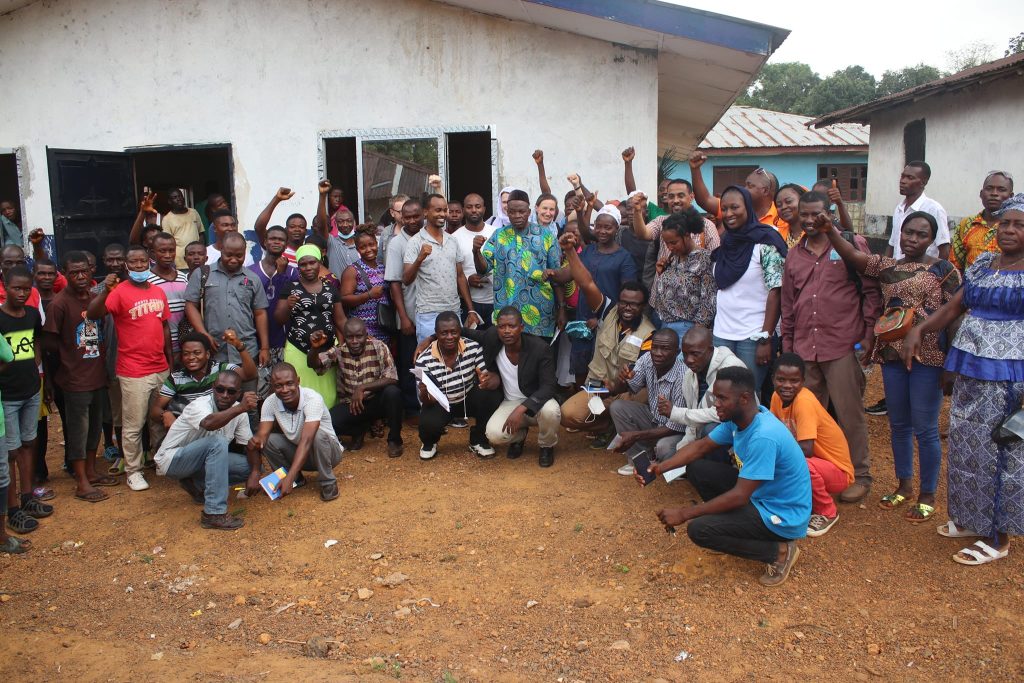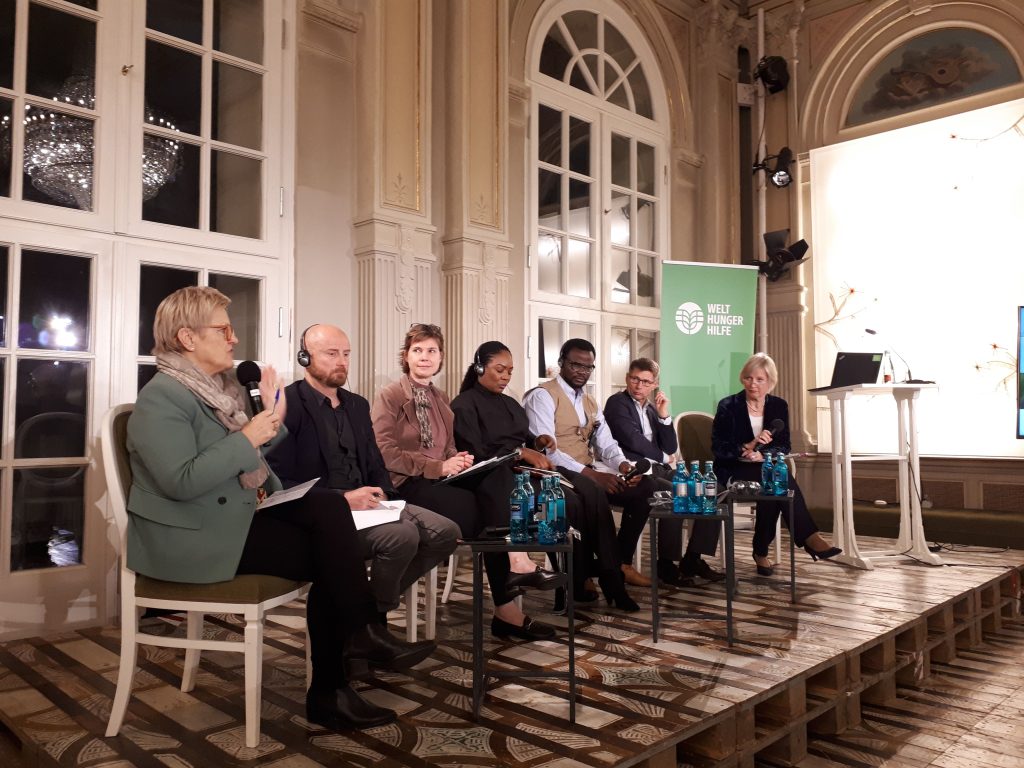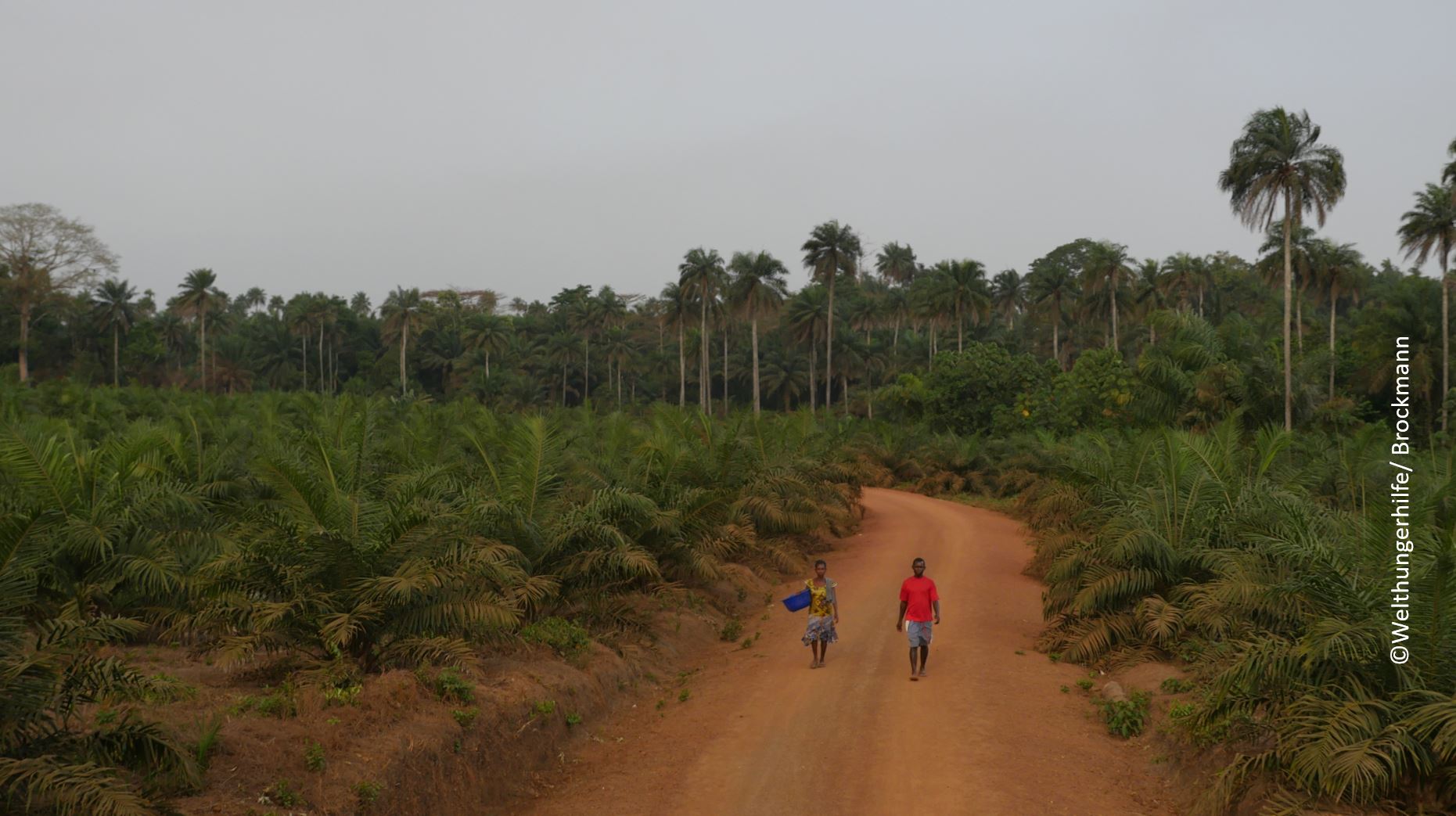- By Gaianee Bouyssou
- 23. August 2023
- 0 Comments
The VGGT+10 initiative has brought new insights, collaboration, and a path forward for revitalizing land rights and food security across the globe.
In a groundbreaking achievement for equitable land tenure rights worldwide, the UN Committee on Food Security (CFS) endorsed the Voluntary Guidelines of Tenure of Land, Fisheries, and Forests in the Context of National Food Security (VGGT) in 2012. Since then, the implementation of these guidelines has strengthened women’s land rights, improved legal recognition of customary land tenure systems, and contributed to transparent processes of decision making. After a decade however, international attention around land governance has diminished. Now more than ever, there must be renewed commitment and consensus to build upon the successes of the VGGT.
To renew global interest and momentum on land governance, Welthungerhilfe (WHH) joined forces with the International Land Coalition (ILC), Gesellschaft für Internationale Zusammenarbeit (GIZ), and the Food and Agriculture Organization of the United Nations (FAO) to launch the VGGT+10 initiative. In Burkina Faso, Sierra Leone, Liberia, and Ethiopia, Land for Life organizations spearheaded the initiative, utilizing their multi-stakeholder platforms and experience to improve land governance.
After a year-long journey of assessments, dialogues, and implementation of joint action plans across 12 countries in Africa and Asia, it is time to look at the VGGT+10 initiative’s insights and to strategize on how to grow the planted seeds.
Why the VGGT+10 Initiative?
The VGGT emerged in response to increasing competition for land ownership and the urgent need to safeguard tenure rights for vulnerable populations worldwide. Their purpose was to outline principles and internationally accepted standards of responsible governance of tenure while recognizing the pivotal role of equitable land access in achieving food security and eradicating poverty.
The translation of these guidelines into national policies and laws is central to sustaining their impact on the ground, however political enthusiasm for VGGT implementation has been waning. Thus, the VGGT+10 initiative was created to gain new political momentum and consensus for a path forward.
Looking Back: Accomplishments of the VGGT+10 Initiative
Cross Country Learning
Conducted by Marc Wegerif and Mohamed Coulibaly, the VGGT+10 Initiative: Country Assessments formed the basis for in-country dialogues and the formulation of action plans, while cross-country learnings informed international advocacy.
The assessments showed significant progress in policies and legislation on the governance of tenure. Eleven of the twelve assessed countries passed new policies or made major amendments, many of which are aligned with the VGGT. This includes strengthened women’s land rights, improved legal recognition of customary and communal tenure systems, and greater recognition of effective, transparent, and nondiscriminatory land governance.
The most recent example of VGGT aligned legislation are the Customary Land Rights Act and the National Land Commission Act passed in Sierra Leone in 2022. The acts require the Free Prior and Informed Consent (FPIC) of communities in every new land development endeavor and women’s participation in land-related decision-making. Beyond Sierra Leone, policy processes have become more inclusive in all 12 countries assessed, with enhanced stakeholder involvement and the establishment of multi-stakeholder platforms (MSPs) on land governance.
On the other hand, the study found that the implementation of these existing laws remains a key challenge across all localities. For example, the registration of communal land rights has been slow in almost all countries. Likewise, power relations and inequalities continue to marginalize women and other vulnerable groups in practice. This can be attributed to factors like inadequate financial and human resources, a lack of transparency and accountability, insufficient access to knowledge and justice by citizens, or resistance by political or traditional elites.
To learn more about findings and recommendations, access the newly launched synthesis report of the initiative and a summary 2-pager.

Creating tangible effects
To strengthen VGGT implementation on the ground, the initiative focused on increasing national awareness and political commitment. Facilitated by MSPs in each country, national dialogue events brought together representatives from government bodies, civil society, communities, the private sector, and academia to chart the course ahead. Land for Life was crucial in establishing this transformational dialogue on land governance.
Based on the assessments and joint discussions, the MSPs developed strategic action plans to improve VGGT implementation in the future. These jointly developed action plans are supported with seed funding provide by the VGGT+10 initiative.
Success Stories from Land for Life:
- In Burkina Faso: the Ministry of Agriculture took the lead in translating the Guidelines into local languages and making them available to populations with little or no literacy. In collaboration with the Ministry of the Woman, National solidarity, and family, the project also brought together chiefs from different regions to sensitize communities on women’s land rights.
- In Liberia: the National Fisheries and Aquaculture Authority trained their staff and fishermen on the VGGT. Furthermore, a government unit on the VGGT which had closed operations was revitalized by the initiative.
- In Ethiopia: where knowledge of the VGGT in sub-national public offices was low, additional regional dialogues were organized to increase political awareness and commitment.
- In Sierra Leone, Land for Life co-organized the People’s Land Conference, which prompted community and marginalized peoples’ engagement and dialogue with VGGT principles.
Raising Commitment on the International Level
The decline in global attention for tenure rights threatens to compromise progress on sustainable food systems, human rights, and livelihoods. The celebration of the 10th anniversary of the VGGT in 2022 created an opportunity to rekindle global awareness and highlighted the importance of land rights in many contemporary crises.
- The VGGT+10 Initiative was launched in May 2022 at the Global Land Forum in Jordan.
- In October 2022, preliminary findings of the assessment were presented at a the Committee on Food Security (CFS) pre-event in which land rights practitioners shared knowledge to reconfirm political, policy, and financial commitments to strengthen future implementation of tenure rights.
- In November 2022, two consecutive events brought together a diverse group of organizations and experts to exchange learnings, discuss the effectiveness of tools such as the multi-stakeholder platform, and develop a set of recommendations which were presented to German policymakers.
- Finally, a virtual closing event in July 2023 provided a space in which country partners, civil society organizations, and donors met to review the initiative’s impacts, share implementation challenges and success stories, and envision a path forward. View a summary of the event here.

Maintaining Momentum to Move Forward
The VGGT+10 initiative took a central place in revitalizing the international debate on responsible governance of land tenure and generating political commitment on the country level. Now, it is crucial to not leave the planted seeds without water. Looking forward, practitioners agree to fully implement country level action plans and address generated recommendations. International advocates must build further political enthusiasm by connecting equitable land tenure to nexus topics such as climate change, land degradation, and food systems transformation. Although the VGGT+10 initiative is concluding, it represents a continuing effort by organizations such as Land for Life to transform land tenure and ensure a better future for all.

